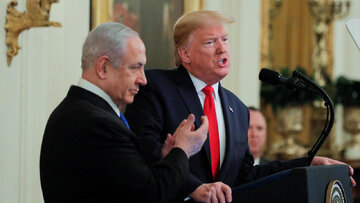Over the past four decades, one of the central questions in analyzing political developments in West Asia has been: why has the Islamic Republic of Iran, despite increasing pressure from the United States and its allies, remained steadfast in its strategic positions without succumbing to political collapse or major retreats? The answer to this question can not be found solely in economic, military, or even cultural arenas. Rather, it lies in a foundational factor that has preserved national cohesion, political legitimacy, and intellectual-practical resistance within Iranian society: Wilayat al-Faqih (Guardianship of the Jurist). This theory is not merely a model of governance but a comprehensive doctrinal, social, and civilizational system that explains the resilience of the Iranian nation against global hegemonic powers.
Divine Legitimacy and Inspirational Leadership
The theory of Wilayat al-Faqih, rooted in Shia political jurisprudence, is based on the premise that the Islamic society requires the leadership of a just and competent jurist who assumes the role of guidance in the absence of the infallible Imam. Unlike Western models of political legitimacy—based on majority rule or social contract theory—Wilayat al-Faqih derives its legitimacy from divine authority and manifests it through popular acceptance. This synthesis of divine legitimacy and public consent creates a unique capacity for navigating crises. In this system, the leadership does not represent any particular class, party, or faction, but serves as a unifying axis for the entire nation. The religious and moral authority of the Leader allows him to steer the country away from deviation or surrender in critical moments. This has been clearly demonstrated in the management of political seditions, economic pressures, and the advancement of the resistance doctrine in foreign policy.
The Civilizational Role of Wilayat al-Faqih in Countering the United States
Within the framework of the Islamic Republic, Wilayat al-Faqih is not just a legal or institutional arrangement; it is the core of a resistance discourse against hegemony. Contrary to the dominant narratives of international politics, which emphasize material power balances, the Islamic Republic’s approach—guided by the Leader—is based on principles of dignity, wisdom, and expediency, all rooted in Islamic teachings. The Supreme Leader, both in discourse and in strategic actions—such as supporting the resistance front in the region—has transformed the U.S. from an unchallenged superpower into a defeated and discredited actor in the public perception of the region. The U.S. has employed soft warfare, economic sanctions, assassinations, and domestic destabilization efforts to sever the bond between the people and the leadership. However, the visible and decisive presence of the leader during critical junctures—such as after the assassination of General Soleimani or during post-election turmoil—demonstrates that Wilayat al-Faqih remains the epicenter of soft power and cultural resolve against American influence.
Social Trust and National Cohesion Around the Leadership
One of the most crucial elements sustaining Iran’s resistance is the deep social trust in the institution of leadership. Unlike many societies where the gap between state and people quickly escalates into a crisis of legitimacy, in Iran, the Supreme Leader—due to his independence from political factions, personal piety, and clear stances—has built a social capital that, especially in times of crisis such as war, sanctions, or protests, has prevented national disintegration. This social trust is rooted in religious concepts such as Imamate, divine leadership, and a sense of moral duty, all of which stem from Shi'a culture. Thus, the Iranian people's resistance against the U.S.






Your Comment